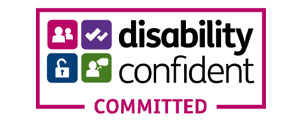Starfish Sessions with Stephen White
On this edition of Starfish Sessions, Tim Farr sat down with Stephen White, a former Chief Executive within Housing and the Social Sector who currently serves on the Board for several organisations. Stephen discusses the impact a very serious injury had on him at the age of 19, the role of employers with their staff, his mindset to work and how he keeps himself active in his spare time.
Please do introduce yourself, who you are, recent career history and organisations you’ve worked with recently?
My name is Steve White, I’ve been an interim manager for over 30 years and spent most of my career working in housing associations and non-profit organisations in a variety of senior leadership roles. I’m currently in a transitionary period moving away from interim management towards a full focus on non-executive work.
Can you tell us a bit more about the work you’re doing currently?
I’m working with a few organisations across housing and the third sector. I’m the chair of Moat, a large housing association, I’m a board member of another housing and care provider in Suffolk, Orwell Housing Association and I’m the vice chair of a military charity called Blesma (British Limbless Ex-Servicemen’s Association), a charity dedicated to soldiers who have lost limbs whilst serving and helping them come to terms with living a fulfilling life despite their injuries.
I’m very careful with my time and I choose to dedicate it to supporting organisations which are personal to me and close to my heart. I still remember growing up in dreadful temporary accommodation in Bethnal Green, so I really understand the impact housing has on people. I also served in the military which led to the loss of my leg in a training incident in the 1980s.
Can you tell us a bit more about that, how long ago and the impact it had on your life and career?
I was injured at the age of 19 while serving in an army regiment. I suffered very serious leg and knee injuries, leading to over 30 surgeries to try and salvage my leg but ultimately it had to be removed. I lost 3 stone overnight, a much better weight loss plan than Weight Watchers!
I had to find a life outside of the military and I was very lucky to get a job in the city, someone took me under their wing leading to the start of my career in business.
How did you find the transition into the professional working world from the military?
Once you’re out of the military, you’re out. There’s very little support provided which remains true to this day. You also don’t develop many life skills in the military and there are plenty of men and women who are injured on duty so cannot remain in the military and they lose their friends, job and network. You are thrown into the outside world without much support and that’s the position I found myself in back in the 80s. It was a difficult economic climate in the UK back then, I was desperate for work and had just left the military with a leg injury, I was really fortunate someone took a chance on me.
How did you come to terms with your disability and not let it become a barrier to you?
I’ll start by saying that losing your leg is not something I would recommend to anyone as a life experience. What it did afford me was an opportunity to build a degree of resilience and look at life in a different way. Technology is incredible these days but when I lost my leg I was issued with a crude mechanical piece of kit – I fell over constantly.
I was actually working as an interim when my leg was removed and 6 weeks later I was back working again. I remember being in a hotel room on crutches, hopping to the wardrobe, hopping back to the bed to pick up all my things so you certainly learn a set of new life skills which I view as a positive.
Do you view yourself as disabled? Do you feel the need the raise it during an interview, particularly now so many interviews can be done from home?
I’ve never declared that I have a disability unless I’m specifically asked, I’ve never volunteered this information because I don’t really see myself as disabled and I’ve never felt the need to mention it during an interview.
Do you think employers are doing enough to support people with disabilities?
Most organisations these days do now try to do what they can and welcome people with impediments, I’ve certainly seen this improve over the years and I genuinely believe the world has moved in a positive direction with this. Having said that, disability is very personal. There will be people with similar injuries to me but will have very different life experiences and different needs so there’s really no one-size-fits-all model.
As a former CEX yourself, what advice would you give to employers to manage the individual needs of people as part of a process?
To not make any presumptions about people. It’s reasonable to ask someone if they need assistance but don’t presume because I’m an amputee that I need x or y. I tend to be quite flippant and light-hearted about it and I often make a joke about it to break the ice, but for other people it might be different. It can take a while to come to terms with your disability, both physically and emotionally.
You’ve worked in so many different sectors – third sector, public sector, higher education and private sector. How did you manage this, any advice you’d give to someone looking to move into other sectors themselves?
I’ve always focused on results, and I can honestly say that I’ve had more good results than bad results so people have always kept close to me. I’ve found on each of my assignments, irrespective of the sector, the issues were usually the same – a lack of clear strategy, a lack of leadership or a lack of communication. If I could get those three things right, performance issues would usually resolve themselves and results would follow.
I’ve been tapped on the shoulder quite a few times because former colleagues I’ve worked with have formed a positive view of me, know what I can do and deliver and turned to me when needed. I’ve never been an active networker myself but I certainly recognise the importance of having a strong network to facilitate moving to different sectors or into other roles.
Did you find the transition from executive to non-executive a challenge?
Interim management is incredibly stimulating and intellectually challenging, but you do pay a price staying away from home in hotels which I have done all over the world throughout my career. Moving away from this towards advisory and non-executive work hasn’t been a cliff edge for me because I started developing my portfolio over time, so it all blended together which was a conscious choice for me.
What advice would you give to someone thinking about moving into non-executive work themselves?
The advice I’d give here would be the same advice I’d give someone moving from permanent to interim work. You need to be comfortable with the uncomfortable, you go into new organisations regularly, there are different cultures, management structures and ways of working and you need to adapt to these different environments.
In the non-exec world specifically, don’t mark your own homework. Interims tend to be solutions focused and non-exec work is about governance, it’s not about imposing your views on the solution. You need to understand what good governance means – challenging, scrutinising and supporting executive teams relative to whatever their challenges might be without imposing your view of the world.
What advice would you give to your younger self?
Wind my neck in a bit. I was a gobby young teenager. Always be curious too.
Tell us about what you’re doing in your spare time right now?
I’m a really keen swimmer and I’ll be swimming the English Channel for the second time this September with 3 other members from Blesma. We completed the swim in 12 hours 14 minutes the first time and we really want to beat that time this year!
Expert Interim Talent: How to Launch Your Portfolio Career
Today's business landscape demands agility and specialised expertise. Discover how to leverage your skills across diverse, high-impact projects, gaining unprecedented flexibility and autonomy. Forget "holding the fort", modern interims are strategic leaders, driving change and delivering results in times of transformation.
Recruiting leaders in perilous times
Leadership appointments have always carried weight, but in the current climate they carry a different kind of exposure. For those of us working at the interface between Boards and candidates, it is clear that the rules of engagement have shifted, and that executive search must shift with them.
In praise of Gen Z
I surveyed my multi-generational team on what they wanted from work. Here's what I learned.
ACCREDITATIONS


ESPO is a public sector owned professional buying organisation (PBO), specialising in providing a wide range of goods and services to the public sector for over 40 years. Starfish Search has been awarded a place on ESPO’s Strategic HR Services framework (3S). Services we offer under the framework include: Lot 1, Executive and Managerial Interim Recruitment Lot 2, Executive and Managerial Permanent Recruitment.


Starfish are proud to be certified Disability Confident Committed. This scheme provides employers with the knowledge, skills and confidence needed to attract, recruit, retain and develop disabled people in the workplace.


Crown Commercial Service supports the public sector to achieve maximum commercial value when procuring common goods and services. In 2020/21, CCS helped the public sector to achieve commercial benefits equal to £2.04bn - supporting world-class public services that offer best value for taxpayers. Starfish Search has been named as a supplier on Crown Commercial Service’s Executive and Non-Executive recruitment. Services we offer under the framework include: Lot 3 - Non-Executive and Public Appointments.


Bloom, launched in 2012 is the UK’s leading marketplace for professional services. They provide an end-to-end solution for the procurement, contract management and payment of all professional services, via the compliant NEPRO³ framework. Their public sector clients have access to 20 professional services categories and over 4500 accredited suppliers. Bloom provides swift routes to market via either direct award or mini competition. Starfish is an accredited supplier to BLOOM; our services can be accessed via this framework - Executive and Non-Executive Search and Interim Management.
Join the starfish team
We hire people who bring insight, integrity and ambition to their work. If you’re ready to contribute to shaping the future of leadership and you want to explore our current opportunities please click the link below.
find out more